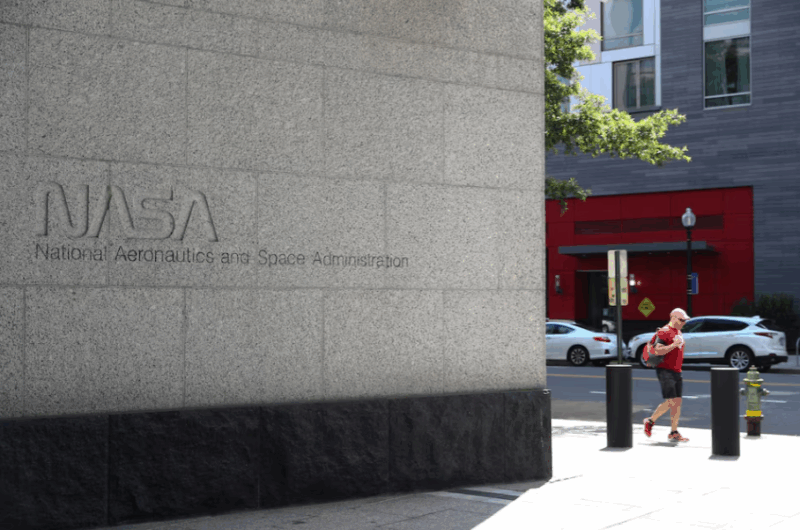
The White House withdrew on Saturday its nominee for NASA administrator, Jared Isaacman, abruptly yanking a close ally of Elon Musk from consideration to lead the space agency.
President Donald Trump said he would announce a new candidate soon.
“After a thorough review of prior associations, I am hereby withdrawing the nomination of Jared Isaacman to head NASA,” Trump wrote on his Truth Social site.
“I will soon announce a new nominee who will be mission aligned, and put America First in space.”
Isaacman, a billionaire private astronaut who had been Musk’s pick to lead NASA, was due next week for a much-delayed confirmation vote before the U.S. Senate. His removal from consideration caught many in the space industry by surprise.
Trump and the White House did not explain what led to the decision.
“It may not always be obvious through the discourse and turbulence, but there are many competent, dedicated people who love this country and care deeply about the mission,” Isaacman said in a post on X.
“That was on full display during my hearing, where leaders on both sides of the aisle made clear they’re willing to fight for the world’s most accomplished space agency.
“I am incredibly grateful to President Trump, the Senate and all those who supported me.”
His removal comes days after Musk’s official departure from the White House, where the SpaceX CEO’s role as a “special government employee” leading the Department of Government Efficiency created turbulence for the administration and frustrated some of Trump’s aides.
Semafor reported the news earlier.
Musk did not immediately respond to a request for comment.
According to a person familiar with his reaction, Musk was disappointed by Isaacman’s removal.
“It is rare to find someone so competent and good-hearted,” Musk wrote of Isaacman on X, responding to the news.
It was unclear whom the administration might tap to replace Isaacman.
One name being floated is retired U.S. Air Force Lieutenant General Steven Kwast, an early advocate for the setting-up of the U.S. Space Force and Trump supporter, according to three people familiar with the discussions.
Isaacman, the former CEO of payment processor company Shift4, had broad space industry support but faced concerns from lawmakers over his ties to Musk and SpaceX, where he spent hundreds of millions of dollars as an early private spaceflight customer.
The former nominee had donated to Democrats in prior elections. In his confirmation hearing in April, he sought to balance NASA’s existing moon-aligned space exploration strategy with pressure to shift the agency’s focus on Mars, saying the U.S. can plan for travel to both destinations.
As a potential leader of NASA’s roughly 18,000 employees, Isaacman faced a daunting task of implementing that decision to prioritize Mars, given that NASA has spent years and billions of dollars trying to return its astronauts to the moon.
On Friday, the space agency released new details of the Trump administration’s 2026 budget plan that proposed killing dozens of space science programs and laying off thousands of employees, a controversial overhaul that space advocates and lawmakers described as devastating for the agency.
Montana Republican Tim Sheehy, a member of the Senate Commerce, Science and Transportation committee, wrote on X that Isaacman “was a strong choice by President Trump to lead NASA” in response to reports of his departure.
“I was proud to introduce Jared at his hearing and strongly oppose efforts to derail his nomination,” Sheehy said.
Some scientists saw the nominee change as further destabilizing to NASA as it faces dramatic budget cuts without a confirmed leader to navigate political turbulence among Congress, the White House and the agency’s workforce.









